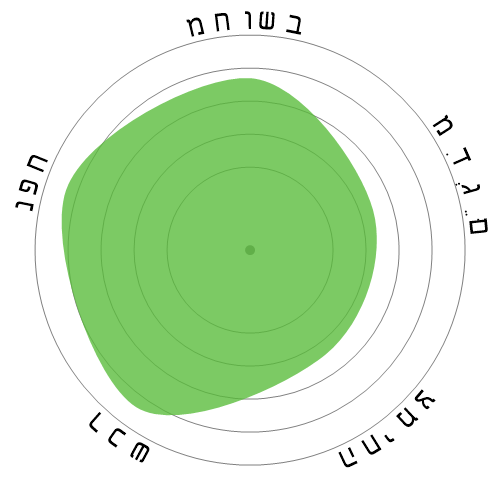עורכי דין
לאן תרצה ללכת עכשיו?
או, חקור מקצוע זה בפירוט רב יותר...


מה מראה פתית השלג הזה?
מה זה?
אנחנו מדרגים משרות באמצעות ארבעה גורמים. אלה הם:
- סיכוי להימכר
- צמיחה במשרה
- שכר
- נפח המשרות הזמינות
אלה הם כמה דברים מרכזיים לחשוב עליהם בעת חיפוש משרה.
אנשים צפו גם
סיכון אוטומציה מחושב
סיכון נמוך (21-40%): משרות ברמה זו מציגות סיכון מוגבל לאוטומציה, מאחר שהן דורשות שילוב של כישורים טכניים ומרכזיים אנושיים.
מידע נוסף על מהו הניקוד הזה, ואיך מחשבים אותו זמין כאן.
סקר משתמשים
המבקרים שלנו הצביעו שהם לא בטוחים אם מקצוע זה ימוטב.
אולם, ייתכן שהעובדים יוכלו למצוא מקור להרגעה ברמת הסיכון האוטומטית שיצרנו, שמראה 23% סיכוי לאוטומציה.
מה לדעתך הסיכון של אוטומציה?
מה הסיכוי שעורכי דין יוחלף על ידי רובוטים או אינטיליגנציה מלאכותית במהלך ה-20 השנים הבאות?
רגש
הגרף הבא מוצג כאשר יש מספיק הצבעות כדי להפיק נתונים משמעותיים. הוא מציג את תוצאות הסקרים של המשתמשים לאורך זמן, ומספק אינדיקציה ברורה למגמות בתחושות.
רגשות לאורך זמן (רבעוני)
רגשות לאורך זמן (שנתי)
צמיחה
מספר המשרות הפנויות בתחום 'Lawyers' צפוי לעלות 5.2% עד 2033
תעסוקה כוללת, ומשרות פנויות משוערות
עדכונים לתחזיות משוערות צפויים להתבצע 09-2025.
שכר
ב-2023, השכר השנתי החציוני עבור 'Lawyers' היה 145,760 $, או 70 $ לשעה
'Lawyers' קיבלו שכר שהיה גבוה 203.3% מאשר השכר החציוני הלאומי, שעמד על 48,060 $
שכר לאורך זמן
נפח
נכון ל-2023 היו 731,340 אנשים שעסקו כ'Lawyers' בארצות הברית.
זה מייצג בערך 0.48% מהכוח העובד ברחבי המדינה
במילים אחרות, כאחד מ-207 אנשים מועסקים כ'Lawyers'.
תיאור המשרה
מייצגים לקוחות בהליך משפטי פלילי ואזרחי ובהליכים משפטיים אחרים, מכינים מסמכים משפטיים, או מנהלים או מייעצים ללקוחות בעסקאות משפטיות. ייתכן ונמקדים בתחום אחד או שמתרגלים באופן רחב בתחומים רבים של המשפט.
SOC Code: 23-1011.00
תגובות (232)
They'll do less errors, and don't require sleep. No more receptionist that is away. Longer opening hours.
Why do you say robots have no empathy, you fillthy racist? They have it. Robots would probably beat you up.
Not that I'd expect someone who doesn't even know the definition of 'racist' and just flings the word around however would know what empathy is...
And besides, you never even addressed what they said. They didn't even bring up empathy, as their point was about people not wanting a robot to defend them. You've brought up a completely nonsensical rebuttal to an argument that doesn't exist.
These are the tasks that robots won't be able to fulfill for at least a decade from now.
השב לתגובה